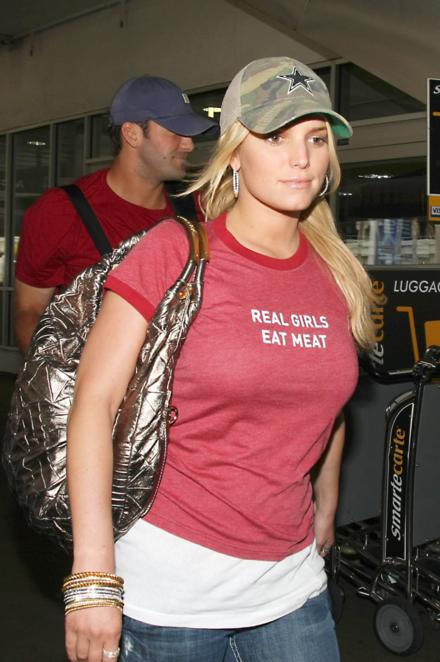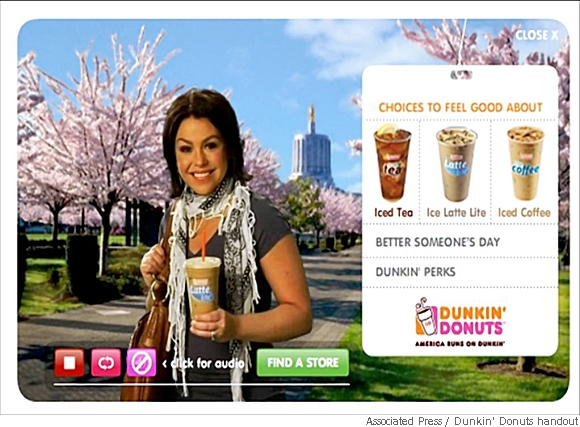Latisha J. let us know about this Special K ad that sexualized dieting (which she read about at Lip-Sticking). The woman (who looks perfectly thin to me), figures out she needs to diet when a button pops off her dress. After she eats the Special K, which we learn can help women lose weight, we see another button pop off, but this time it’s because she’s intentionally revealing more cleavage:
So…popping button because she “needs” to diet = bad, but same woman popping button because she’s trying to look sexy = awesome.
Thanks, Latisha!




